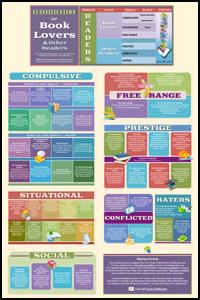Kickstarter Success: 8 Things I Did Right
Exactly one year ago today, I launched my campaign to finish and publish Getting Naked for Money. In the next 30 days–the length of my Kickstarter campaign–I will have finished revising the manuscript.
Step one, finish book: Just about done!
There are a few more steps before the publishing part is completed, but I’m getting there — thanks to all of my supporters.
How did I manage to pull it off?
#1. I prepared
I wrote in my last post that I fussed a bit too much with the Kickstarter video, thus delaying the launch until after the optimum month of April. Much of my preparation, I don’t regret. One of the best things I did was to create a blog. It allowed me to tell potential contributors about the book and, most important, about the concept of backing a Kickstarter project. It also gave me a central place to launch campaigns within the main campaign — to post excerpts from my book, for example.
#2. I asked for–and took–advice
I can be a stubborn know-it-all (see #7 below), but in this case I opened my ears and my mind and listened to people who had been through crowdfunding before. Some were incredibly generous with their time, including Jay Stern of the Unemployed Philosopher’s Guild, where I got my Freudian Slippers. They’re good people. Check out the site.
#3. I turned to friends and family
That seems obvious but some people feel more comfortable asking strangers for money. I get that. If feels more professional somehow, less like you’re living in a basement and mooching off your parents. Nevertheless, family and friends are the best pool of potential donors. They don’t always have to take you in, as the old saw goes, but they’re more likely to cut you a little slack when you get really annoying.
If they didn’t give right away I bugged them. If they did, I asked them to ask their friends to give. I was shameless. In the end, I got most of my contributions from people I knew or people they knew.
It was a good thing I’d created a genealogical blog, Freud’s Butcher, before I got involved with this project. It really widened the pool of possible family contributors.
#4. I understood it was a marathon, not a sprint
I looked at the campaign as a full-time job. That’s one reason I chose Kickstarter rather than a more open-ended crowdfunding platform. You have a finite amount time to raise money. The campaign is over at the end of 30 days. I cleared the decks of freelance work and devoted my days to the campaign as I would to any other job with a deadline.
#5. I didn’t dwell
If something didn’t work–adding different rewards, posting on Twitter–I moved on to something else. I didn’t agonize over what I did wrong.
#6. I didn’t give up
I was exhausted. I was often panicked that I wouldn’t succeed. But…
#7. I made a virtue out of stubbornness and pride
I’m my own harshest critic. But if someone else tells me that I won’t succeed at something, I’m going to prove them wrong. When people said, “I don’t think you can raise that much money,” I thought, “I’ll show you [bad words]” and worked harder.
#8. I showed my gratitude
Although I did a lot of emailing and phone calling behind the scenes, much of my campaign was conducted on Facebook. It became a ritual for me to thank all my contributors there every night, no matter how tired I was. By letting others know how grateful I was for their help, I also reminded myself why I was crowdfunding rather than selling my body (oh, wait, I was too old for that) or trying to get an agent for my dog (I’m still considering that for my next book). Writing is a lonely, crazy-making business. Knowing how many people were cheering me on was almost as important to me as the money.
Almost.












